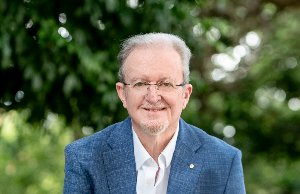
About 100 applications were received for the Auckland-based role left vacant by the resignation of FAMNZ’s first country manager Leigh Hodgetts.
One of the priorities for leading the 196-member organisation will be talking to the Government about ongoing education through mandatory professional industry association membership.
After aspiring advisers have obtained the New Zealand Certificate in Financial Services (level 5), registered with the FMA, and linked to a FAP that is part of a recognised dispute resolution scheme, there is no ongoing education.
FAMNZ managing director Peter While, who also heads up the Mortgage and Finance Association of Australia and the International Mortgage Brokers Federation, which he formed in 2016, says a white paper from the federation’s recent Dublin conference will be released in the next fortnight looking at the issue globally.
“It is about ensuring that mortgage advisers and brokers around the world are properly educated and informed to do the job they are meant to do. It is critically important there is ongoing education.”
As there is no mandatory obligation in New Zealand, White says his concern is that advisers’ knowledge, which may be sound, is not evolving as the industry and rules change.
“It’s exceptionally important advisers keep up professional development hours and unless it is mandated people can be a little bit lax on that.”
He says one way to make sure it is happening is to assist the FMA in what it is doing and take a position on mandatory professional association membership along with a disciplinary process it can run through the association.
“We can also make sure new entrants into the industry are properly mentored so they get the right foundation of knowledge on which to build a career and business.”
From a global perspective, the international federation has had “fantastic buy-in”, White says.
“Once the white paper is released every country in the federation will be taking to back to their politicians and Government, pointing out the issues and, more importantly, saying here are the solutions.
“It’s not just about taking problems as we see them to Governments, but also the solutions and we have those solutions as a global professional group.”
Membership
While FAMNZ membership is at nearly 196 from the about 2,100 New Zealand mortgage advisers, White says his goal is to have it nearer 350-400 by June next year and keep going from there.
Until FMA registration for advisers was introduced there were about 3,500 throughout the country. Many retired or jumped ship to another career and the number of active advisers has fallen dramatically.
Although FAMNZ membership is still small, White says the association’s lobbying and regulator engagement is about 18 months to two years in front of itself and it's been highly successful with the Commerce and Consumer Affairs Minister, the FMA and the Commerce Commission.
Mortgage adviser issues are similar around the world and through country associations being able to share information, submissions and public papers, it has helped them better position conversations at a Government level.
For example when the FMA was formulating its Fair Outcomes for Consumers & Markets regulations, White says a large part of the document was based on two pieces of
Australian legislation – RG209 responsible lending obligations and RG273 best interest duty.
One of the pieces was written by an expert, who sits behind the Finance Brokers Association of Australasia, when he was with ASIC, the Australian equivalent of the FMA.
“There are some differences between New Zealand and Australia but a lot of the legislative framework is really similar,” White says.
“It is important for advisers to understand FAMNZ is a specialist advocacy group for the sector only. “We're not advocating in the planning or insurance space or anything else. We're advocating in the mortgage advice area as an area, especially to make sure that the understanding of that sector is clearly understood.”




